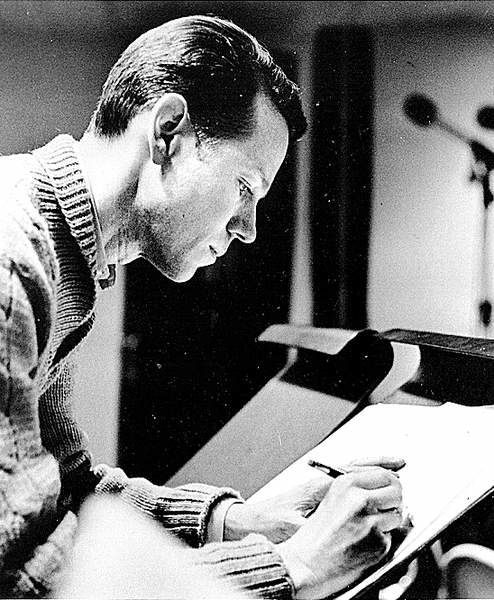Songwriter Hugh Martin added sparkle to ‘Meet Me in St. Louis’
Published 5:00 am Monday, March 14, 2011

- Broadway songwriter Hugh Martin writes a vocal arrangement for “High Spirits” in 1963. Martin died Friday in Encinitas, Calif. He was 96.
Hugh Martin, a Broadway and film songwriter who composed three enduring classics introduced by Judy Garland, “The Trolley Song,” “The Boy Next Door” and “Have Yourself a Merry Little Christmas,” died Friday at his home in Encinitas, Calif. He was 96. His niece, Suzanne Hanners, said a cause of death could not be determined.
All three of Martin’s best-known songs were featured in the 1944 MGM musical “Meet Me in St. Louis.” In addition to being a showcase for Garland, the film was recognized for its sparkling score, which brought a fresh complexity to the Hollywood musical.
The songs were credited to Martin and his musical partner, Ralph Blane, but in reality Martin wrote virtually all the songs in “Meet Me in St. Louis.”
“The Trolley Song,” with its effervescent opening — “Clang, clang, clang went the trolley, ding, ding, ding went the bell!” — became a No. 1 hit and was nominated for an Academy Award as best song.
The bittersweet “Have Yourself a Merry Little Christmas,” with words and music by Martin, became a holiday classic, recorded by more than 500 artists. In the 1944 film, Garland sang it to her younger sister, played by Margaret O’Brien, as they were about to move away from their childhood home.
Martin’s original lyrics were decidedly bleak: “Have yourself a merry little Christmas. It may be your last. Next year we will be living in the past.”
Garland complained that the words were too depressing. At first, Martin was adamant about using his original words, but when other cast members and director Vincente Minnelli voiced objections, he relented and composed a new set of lyrics: “Have yourself a merry little Christmas. Let your heart be light. From now on our troubles will be out of sight.”
In 1957, when Frank Sinatra recorded the song for a Christmas album, he asked Martin for further changes to “jolly it up.”
Martin substituted “Hang a shining star upon the highest bough” for the next to the last line in the song, replacing the words sung by Garland: “Until then, we’ll have to muddle through somehow.”
Over time, Martin came to recognize that, without revised lyrics, his song might never have caught the public’s imagination.






